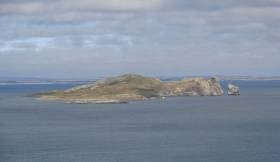Displaying items by tag: Clonshaugh
Planning Hearing On Clonshaugh Wastewater Plant Gets Under Way
Planners are from today set to review proposals for a controversial €500 million wastewater treatment scheme in North Dublin, as The Irish Times reports.
Clonshaugh near Dublin Airport was chosen in June 2013 as the site for the sewage ‘super plant’ before Irish Water took over the Greater Dublin Drainage project from Fingal County Council last year.
The new plant — second only to the Ringsend wastewater facility in scope — would be connected to a new orbital sewer to Blanchardstown, and an outfall pipe to eject treated wastewater in the sea north of Ireland’s Eye.
Plans for the new sewage processing plant have faced strong local opposition, both from residents adjacent to the Clonshaugh site and connected works and marine professionals concerned about potential environmental risks.
Last October, Howth-based ferryman Ken Doyle expressed his fears of the knock-on effect on fish stocks from any accidental contamination of the local waters from the outfall pipe.
The planning hearing began at The Gresham hotel in Dublin this morning, and The Irish Times has more on the story HERE.
Clonshaugh Chosen For Fingal Sewage 'Super Plant'
#Sewage - Clonshaugh in North Dublin has been chosen as the location for the city's new water treatment 'super plant' which has long faced objections from local campaigners.
As The Irish Times reports, a meeting of Fingal County Council yesterday afternoon (10 June) saw the site near Dublin Airport chosen over Annsbrook and Newtowncorduff, both near the coastal towns of Rush and Lusk.
Part of the plan includes the construction of a 26km orbital sewer to collect waste from parts of Dublin, Kildare and Meath, and an outfall pipeline that will eject waste near Ireland's Eye.
Project managers have described the Clonshaugh option as "ecologically and environmentally better" than the alternatives, but campaigners such as Reclaim Fingal chair Brian Hosford argue that "the potential for environmental disaster [with a single large plant] is enormous".
In January 2012, Minister for Health James Reilly raised his own concerns that any potential malfunction at the large-scale facility - second-only in scale to the new water treatment plant at Ringsend - could see huge amounts of raw sewage pumped into the Irish Sea.
Meanwhile, The Irish Times also spoke to a farming family who may lose as many as 40 acres if the 'super plant' gets the go-ahead adjacent to their land.
"I would have to change my whole system of farming if this goes ahead," said 77-year-old PJ Jones, who added that his biggest concern was the smell.






























































